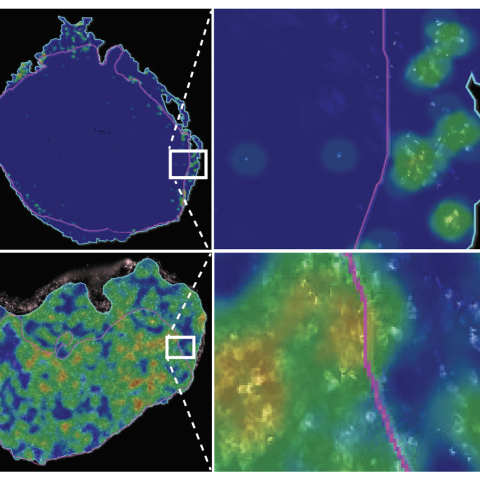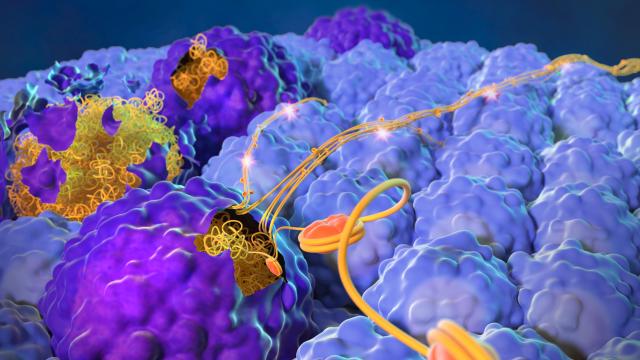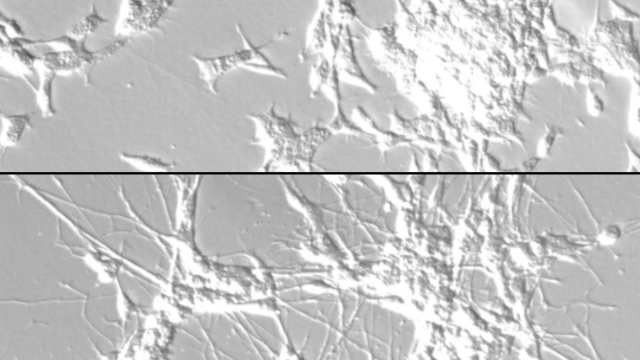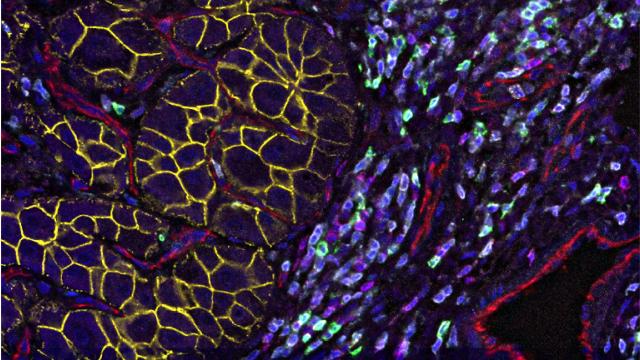
Spatial heatmap of CD3+ T cells in small cell lung cancer (SCLC) tumors. Top: Notch1 gene inactive, “cold” SCLC with T cells located on the tumor periphery (immune-excluded). Bottom: Notch1 gene active, “hot” SCLC with abundant T cell tumor infiltration (immune-inflamed). Image credit: Roper lab.
CCR researchers discovered a key gene in small cell lung cancer (SCLC) that, when activated, elicits robust immune responses and predicts survival with immunotherapy. The team, led by Nitin Roper, M.D., M.Sc., Lasker Clinical Research Scholar in the Developmental Therapeutics Branch, and Yoo Sun Kim, Ph.D., a research fellow in his lab, published their findings in the Journal of Clinical Investigation on July 8, 2025.
SCLC, a rare but lethal form of lung cancer, has long been known to be a “cold” tumor, meaning people with the disease lack tumor-infiltrating immune cells and have low expression of MHC Class I, a type of cell surface receptor that helps the immune system identify different cells. Progress with immunotherapy has been limited in SCLC.
This study found that activation of NOTCH1, a gene known to control cell differentiation and growth, converts SCLC tumors from “cold” to “hot,” stimulating the immune system. NOTCH1 reactivated STING (Stimulator of Interferon genes) leading to higher expression of MHC Class I molecules and robust T cell–mediated anti-tumor immune responses. People with SCLC whose tumors had high NOTCH1 expression survived significantly longer with immunotherapy compared to people with low NOTCH1 expressing tumors.
This study provides evidence that NOTCH1 can predict therapy response in SCLC, opening the door for a future biomarker-based approach. Developing therapies to activate NOTCH1 may also be a promising treatment strategy.
Roper and his team also recently uncovered Notch ligand DLK1 as a new immunotherapeutic target in neuroendocrine cancers, including SCLC and adrenocortical carcinoma. Targeting DLK1 with an antibody drug conjugate (ADC) induced significant anti-tumor responses. Additionally, his team found that DLK1, through suppression of NOTCH1 signaling, reduced chemotherapy resistance in adrenocortical carcinoma. A phase 1 clinical trial targeting DLK1 with an ADC is currently active at the NIH Clinical Center (NCT06041516).
Citation: Kim YS, et al. J Clin Invest. 2025 Jul 8:e185423. Epub ahead of print.
Writeup information provided by: Nitin Roper, M.D., M.Sc., and Yoo Sun Kim, Ph.D.


